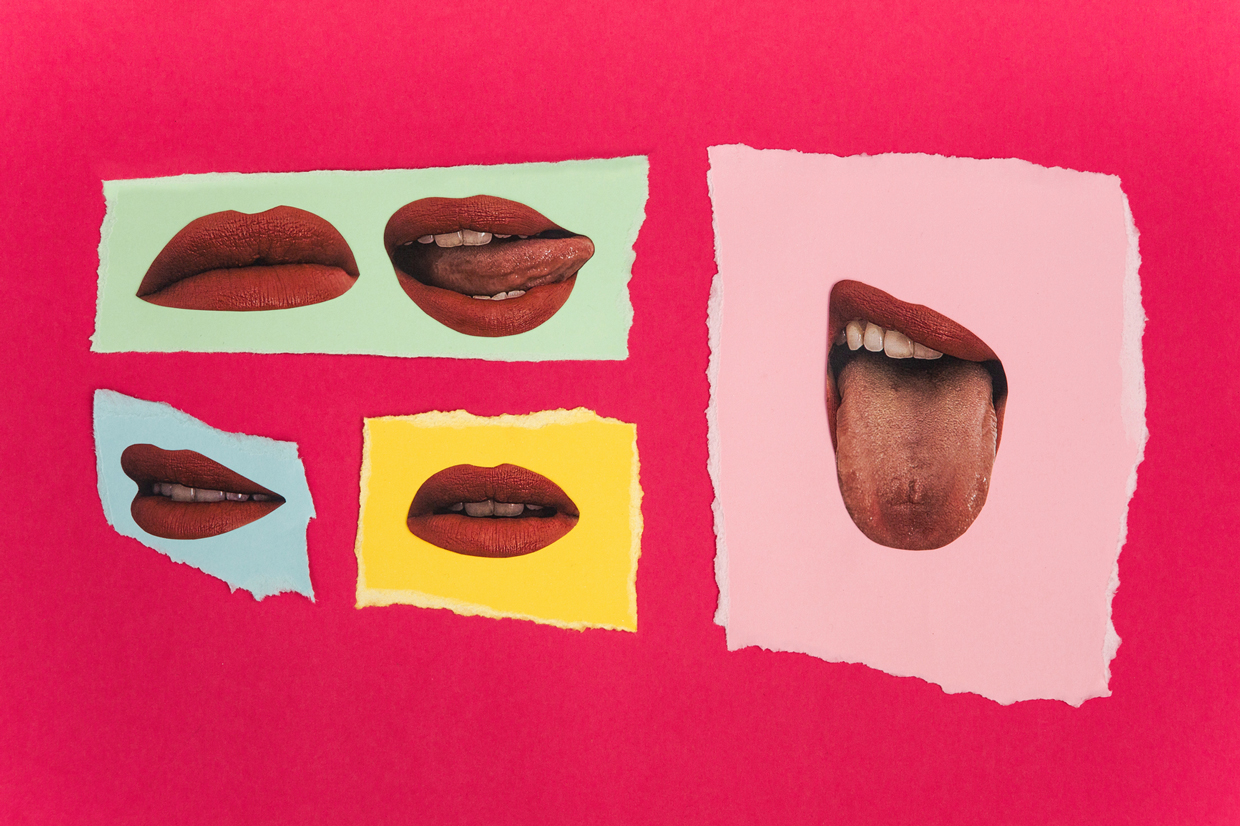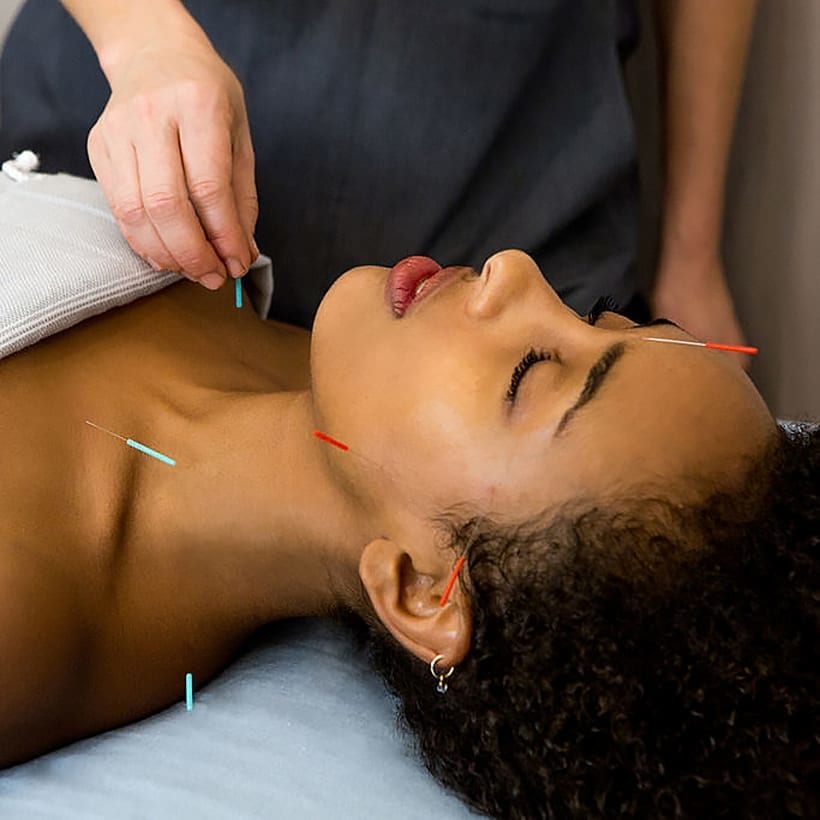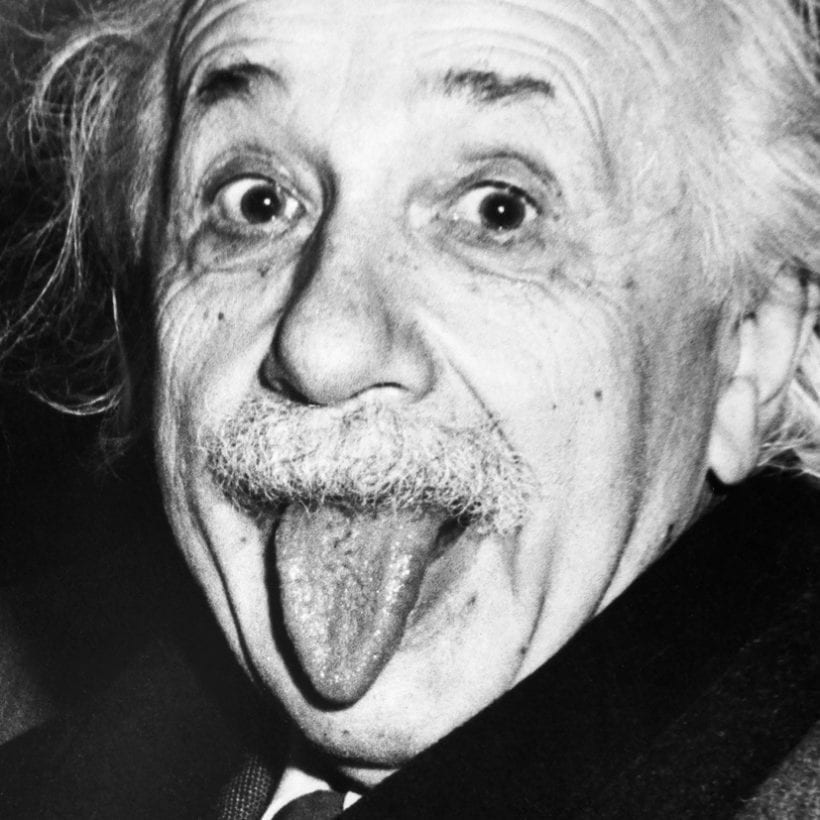The last time you were at acupuncture or even your annual physical, your acupuncturist or doctor probably asked you to stick out your tongue. What you may not know (I had no idea until writing this) is what they’re looking for when this happens.
As it turns out, “the tongue offers a window into the physical and emotional health of the body. When looking at the tongue, the Traditional Chinese Medicine (TCM) practitioner notices the shape, color, texture, moisture, coat, and organ function,” Dr. Janine Mahon, Doctor of Chinese Medicine said. She adds that from a Chinese medicine perspective the tongue has, “many relationships with the internal organs of the body. Tongue diagnosis creates a picture of what is happening within by location, state of Qi, blood, and body fluids, as well as the progression of the disease. By looking at the tongue, we figure out the best way to treat you.”
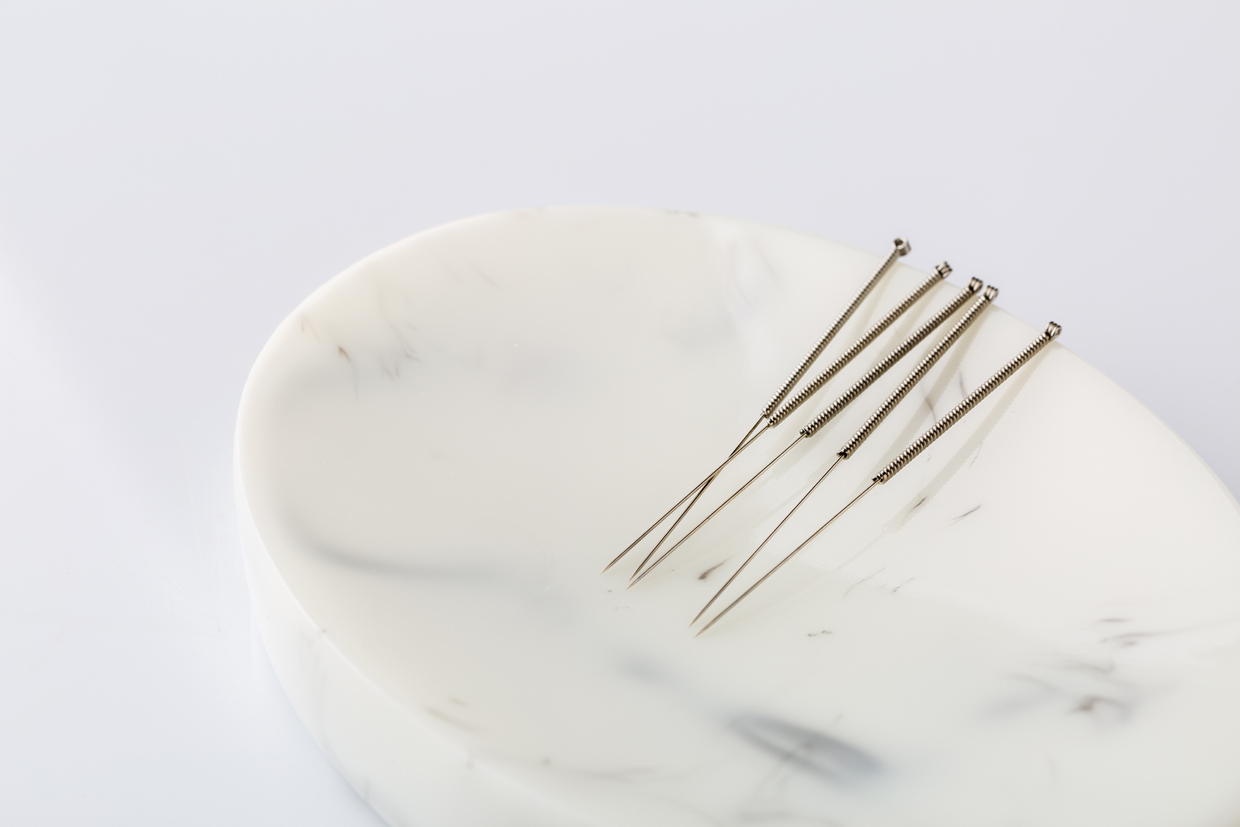
Meet the Experts
Dr. Janine Mahon, Doctor of Chinese Medicine.
Dr. Giselle Wasfie, Doctor of Acupuncture and Chinese Medicine. Giselle is a nationally board-certified acupuncturist and herbalist (NCCAOM), licensed in California, Illinois and New York.
Dr. Angela Le, DACM, MSTOM,LAc. Dr. Angela Le is a leading integrative reproductive health expert, acupuncturist and founder of Fifth Avenue Fertility Wellness in New York City.
Why do I stick out my tongue in acupuncture?
“In East Asian medicine or traditional Chinese medicine, there are energy highways that flow through the body, and the tongue and the wrist are the two areas where we can use our diagnostic tools to feel for the energies of these different channels,” Dr. Giselle Wasfie, Doctor of Acupuncture and Chinese Medicine told me over FaceTime. In the simplest terms possible, a TCM can begin to see a clearer picture of your overall health, hydration, blood flow, and more by looking at the tongue.
“When we look at the tongue as a microcosm for the body, we divide it into three sections: The back of the tongue correlates to the lower organ/channel system. It tells us from a Chinese medicine perspective, not a biomedical model, what is going on in the intestines, kidneys, and bladder,” Dr. Angela Le, DACM, MSTOM, LAc. at Fifth Avenue Fertility Wellness, said.
The middle of the tongue can give insight into what’s happening with the middle systems of the body, including the spleen, stomach, liver, and gallbladder, she explains, and the tip of the tongue correlates to the upper part of the body, specifically the heart and lungs. “When we are diagnosing possible pathology in these regions, we are not saying there is something wrong with your heart, for instance, as it sits in your chest, but the energetics around the Heart as it pertains to Eastern Medicine,” Dr. Le says. A notch on the tip of the tongue may indicate sadness or grief, for example.
What the color of your tongue means
Most people think of all tongues as being a pinkish reddish color, but there are actually variations in color that a TCM will pick up on. During my tongue reading with Dr. Wasfie, in which I stuck my tongue into the FaceTime camera (surprisingly not as weird as it sounds), she told me that my tongue was slightly purple, which could indicate “blood stasis.” This echoes what my acupuncturist tells me every time I see her and could be a result of having had a miscarriage within the year, something that can deregulate blood flow. The tongue reading only lasted about 15-20 seconds, and if you have to hold your tongue out any longer, it can alter its appearance. Dr. Wasfie does not offer tongue readings as a standalone session, but rather, as is the case with most practitioners, is a part of an acupuncture session.
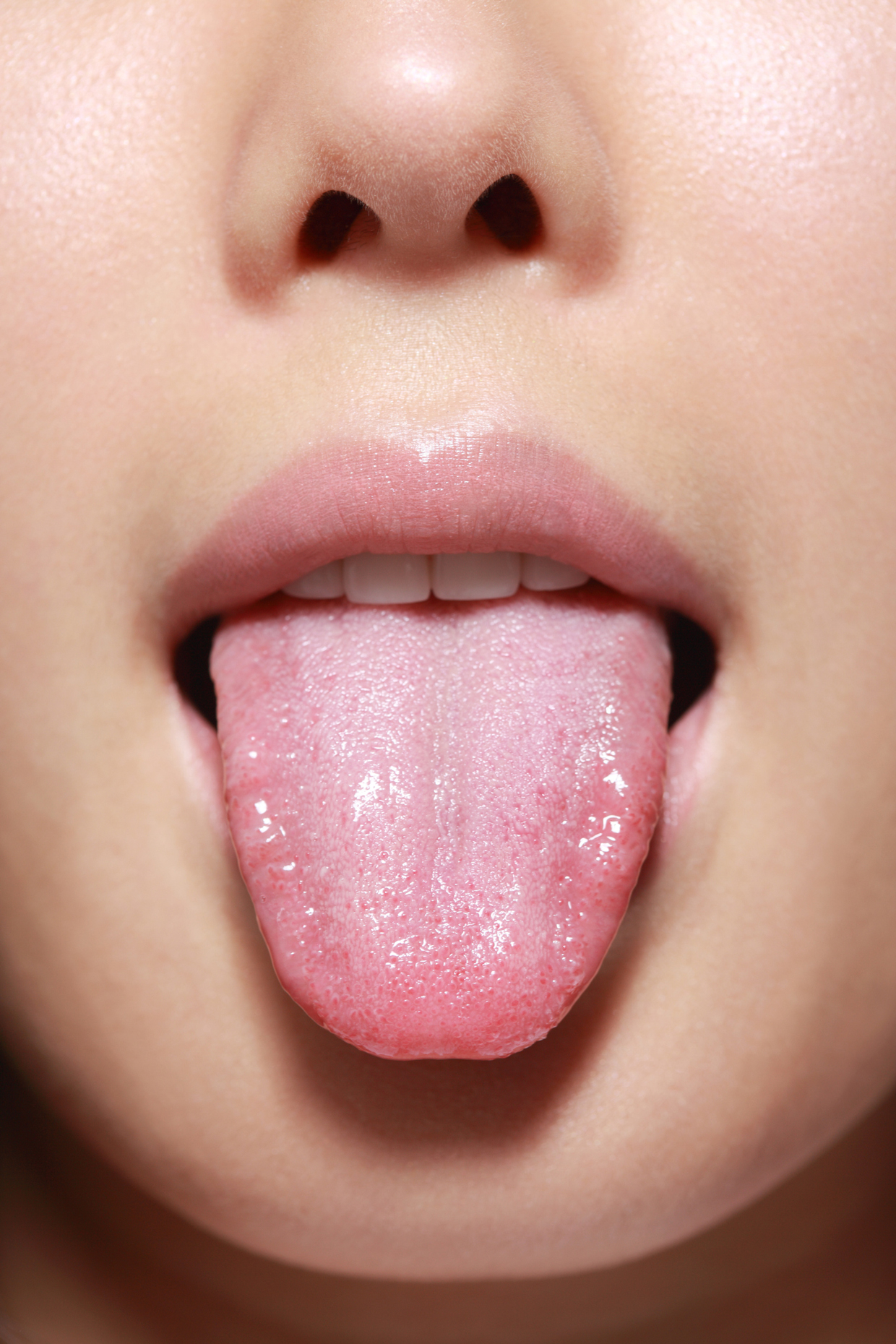
Dr. Wasfie told me that an “ideal tongue” is red “as a fresh piece of meat.” A very pale tongue can indicate a blood deficiency within the body; Dr. Wasfie says this is somewhat of what anemia is and adds that a pale tongue can also be related to the body being internally cold.
Why your tongue may have a coating or “fur”
You may hear a TCM or your acupuncturist refer to a coat on your tongue as “fur,” While this sounds strange, it’s actually something you can easily see yourself sticking out your tongue. A “normal” coat is thin and slightly white, though the pinkish-red color of the tongue will be visible through.
Dr. Le says looking at this coat can provide information about what’s going on with the stomach. “The tongue is the first (and only visible) organ of the digestive system, so it can give us a look into what’s going on with the stomach and how well it is working,” she said. “For instance, if the coat is yellow, it indicates that there may be some heat in the system.”
Heat in the body can manifest as red eyes or redness in the face, constipation, dehydration, dark urine. People may notice symptoms of excess heat in the body, like smellier sweat, for example, right before one’s menstrual cycle, Dr. Wasfie says.
“If [the coat] is thick, there may be systemic phlegm or dampness. If there is no coat at all or if it’s dry, this may tell us that there is dryness or damage to the internal fluids in the body. Depending on where the coat is (and where it isn’t), it gives us further information about what body systems may need healing,” Le says.
During my tongue reading, Dr. Wasfie told me that my tongue has a slight yellow coat (which may or may not have been due to the coffee I drank before our appointment). She also noted that my tongue looked dry, which made sense because I constantly feel thirsty. However, I drink a lot of water (while this is not a big deal in my case, in some situations, unquenchable thirst can be a sign of diabetes, so be sure to mention this thirst to your doctor). There is no concept of this idea in Western medicine, but in Eastern medicine, there is an idea that relates to “San Jiao,” or a channel in the body that metabolizes water; Dr. Wasfie says some people can drink water without it being incorporated into the body (it was helpful when she told me to think about watering a plant and having all the waterfall out the bottom of the pot rather than soaking the soil). She suggested putting a humidifier in my room, drinking a lot of water, and eating high viscosity foods. “High viscosity foods like eggs and avocado nourish Yin and moisture in the body, and often ‘thirst’ is a sign of internal dryness,” Dr. Wasfie explains.
The tongue and the menstrual cycle
By looking at sublingual veins, which are the veins under the tongue that are visible if you were trying to touch your tongue to the tip of your nose, for example, a TCM can actually pinpoint where you are in your cycle or if your period is near; this is based on how full the veins look. One of the most amazing parts of my tongue reading was when Dr. Wasfie correctly stated that I was at the midpoint of my cycle solely by looking at those veins.
Should I brush my tongue before acupuncture or a tongue reading?
You can definitely brush your teeth before acupuncture or a tongue reading, but avoid brushing your tongue before your session. “There is so much valuable information on the tongue and scraping it will distort it,” Dr. Mahon said. “I notice in my clinic that patients feel vulnerable sticking out their tongues. I understand it is something we are not accustomed to in the U.S. After you show your TCM practitioner your tongue, they will likely ask about symptoms you may have that you hadn’t mentioned — this knowledge will help them provide you with the best care!”
So be sure to skip the tongue scraping before your session and avoid food and drinks like coffee, beets, or anything with artificial coloring (like lollipops or sports drinks) that will alter the way your tongue looks.
